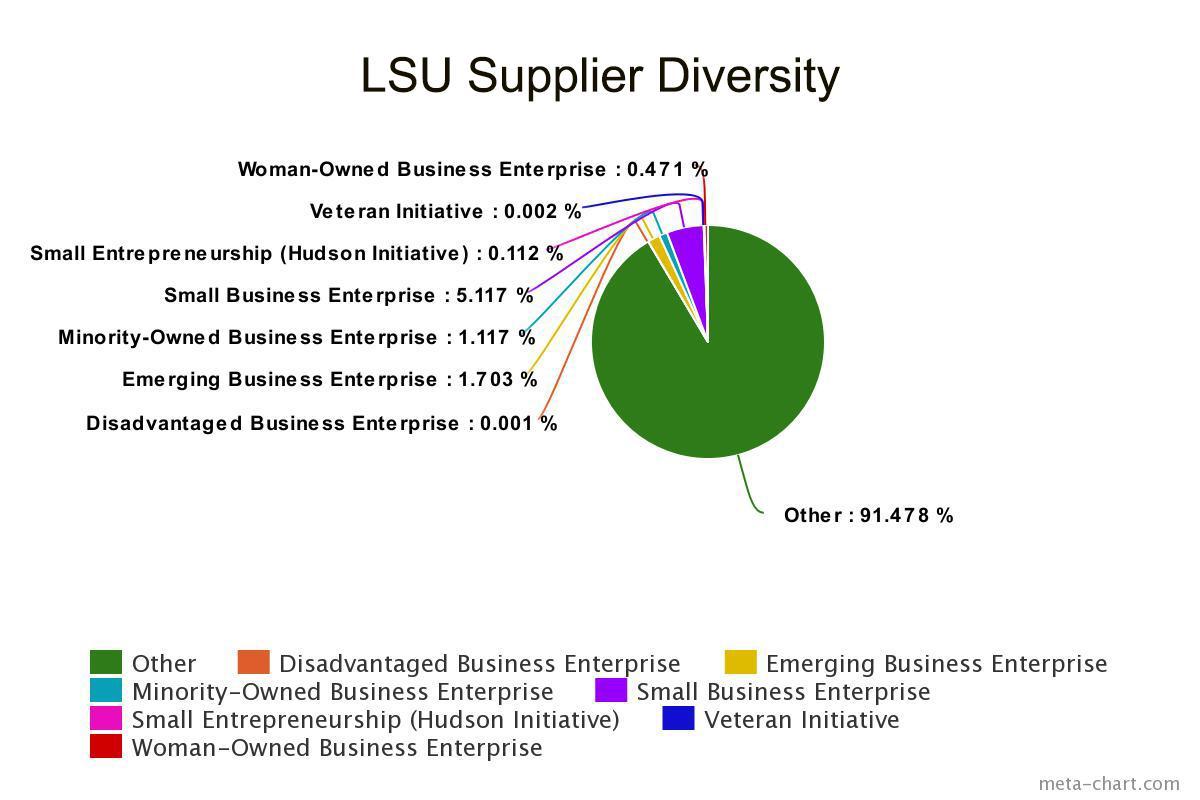Unveiled at the Oct. 13 Board of Supervisors meeting, the University is implementing a supplier diversity initiative aimed at providing opportunities to women- and minority-owned businesses.
“The impact that small businesses, minority-owned or women-owned, is huge,” said LSU Procurement and Property Management assistant vice president Sally McKechnie. “Not only that, we need to help foster the development of diverse businesses.”
The initiative is aimed at creating opportunities for diverse businesses to work with the University or receive help in other ways. The program seeks to expand spending with diverse companies. This spending is broken down into two tiers. Tier 1 is directly spending money with a company. For example, Impress Marketing Studios is a certified Minority Business Enterprise and has the CLC license to produce LSU merchandise, McKechnie said. The second tier is comprised of subcontractors with the University, like Triple B’s Cajun Corner who subcontracts with the University to run concessions in the Tiger Stadium.
In addition to direct contracting, the University is aiding diverse businesses’ networking and helping them find opportunities elsewhere.
“We’re really trying to bring attention to these businesses,” McKechnie said. “So, I’ve been networking, as well.”
McKechnie said she has spoken to companies like Blue Cross, Blue Shield and even some municipal organizations in New Orleans, both of which have robust supplier diversity programs. New Orleans, notably, spends 34 percent of its budget on diverse suppliers, McKechnie said.
The initiative is not one that gives preference or points to diverse suppliers when considering contract bids, McKechnie said.
“It’s not a preference program. But we can help them become better at doing the work that they do or the bidding opportunities they get,” McKechnie said.
The initiative is targeting any and all businesses it can, from toilet paper to catering, promotional supplies to construction material, McKechnie said. The initiative is also getting an Advisory Board. The purpose of the board is to guide the initiative and create networks for these businesses.
“Any that we can target to help grow their business helps the University,” McKechnie said. “It gives them an opportunities to work with the University and grow their business.”
The Board of Supervisors was receptive to the idea, as diversity continues to be a priority for the University, McKechnie said.
“Much like diversity in students, faculty and staff, it’s important for us to continue to work with diverse suppliers as well.”








